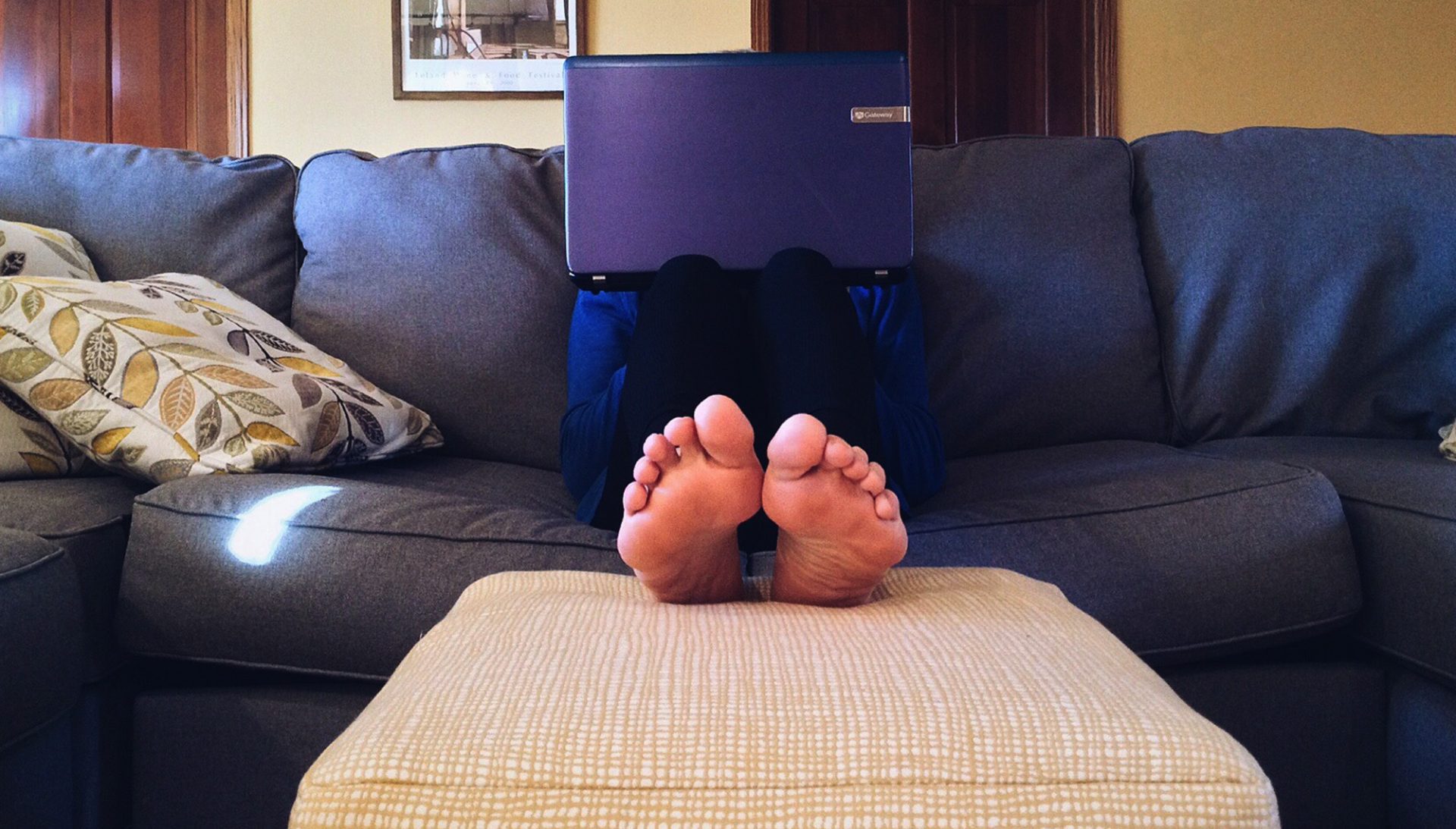2009: What do you mean you will work from home?
2020: Can everyone please stop coming to work and instead work from home?
Working from home isn’t something new to me. When I just got out of college in 2006, I wasn’t really sure if there was a job available for me. Not that I did not look, but most of the openings back then were for hardcore software development or graphic design. But my interest were none of these, so I set out to become a web designer ¯_(ツ)_/¯
My very first set of assignments were designing the corporate website of a (now defunct) Internet Service Provider company and a range of VoIP calling cards they offered. They were an ISP: so most of the work they did was servers, routers and wires, and they did not really have a permanent space for a designer. They did not need me everyday, yet needed my services. So we reached to an arrangement where I could work without coming to office, and only actually “come” to the office for server deployment and collect my cheque.
Huh, I could work without coming to the office. Now that was something new to me. I did know such a thing like working from home existed. But after couple of months going that way, I realized it wasn’t all too bad. I mean, you could work the way you want to and still get to be at home. That was amazing! I continued working from home until 2009 (three full years) until I switched gears and went to work at a newspaper company.
I had unknowingly signed up to work from home, a privilege I would utilize much later in my career.
Fast forward fourteen years: It’s 2020 and almost one-third of the world is at home. Internet is much faster and there are better, stricter time and effort tracking tools. Things have changed tremendously in terms of how work is done and delivered, and it truly doesn’t matter where and how you work. Once, a colleague of mine took a client call waiting in line at the Yatayat Office, and once I had to deliver something really really urgent while I was vacationing in Thailand in 2018. Now that we’ve eliminated the concept of requiring to be physically present at your desk, the whole WFH culture comes with a lot of freedom to the workers, but perhaps, with a mild headache to the employers.
Not all organizations are equipped with the ability to perform work remotely. Imagine customer-facing companies where the customers don’t show up and you’ll have absolutely nothing to do. And there are another bunch of companies that have otherwise policies (eg. not being able to access data outside the office network, or operate a machinery that you cannot bring home, etc.) that make working remotely impossible. I understand that there are exceptions, but I am blessed to be in a profession where remote work is in the core of what I do everyday.
I once worked with a client whom I never met and never spoke to. We only sent text messages through HipChat and were able to pull off a decent size project in three weeks.

90% of the customers I’ve worked with in the last eight years were geographically distanced. Discounting couple of projects I did for Kathmandu-based customers, almost every other client at Expresiv or currently at Leapfrog have been based in the US. I’ve been lucky to meet a couple of them in person and have managed to have lunch with some, work still, has forever happened remotely. The generate rate of success is almost 100%, and there has not been a single case where the project has been terminated or the client has left dissatisfied due to the distance in location, so that’s a win.
Work from home is an introvert’s dream come true
I hate talking. No seriously, no matter how people perceive me, going up to a person and speaking up is not one of my strengths. I suck at it. Because I’ve done this day in and day out, perhaps I’m used to it, but this isn’t one of my instinctual habits. I like to be by myself while I work. I hate constant dinging of the phone and I absolutely fucking hate it when people call to say “they just sent the email.” I mean come on, I saw it already. I have enabled push notifications for emails! No matter how comfortable the company tries to make you feel at work, there still are those unavoidable things like stand-ups, meetings and greetings that you can completely eliminate if you work from home. Also, working from home has turned out to be more productive for people when they are able to cut on commute and lunch times.Trust me, more work gets done where you can cut the distractions and focus on what you’re really required to do.
But home is (also) where the noise is
Well yea. Especially for family who are accustomed to mandatorily showing up at work, or haven’t worked in an office ever, any WFH might looks like a leave day. And this has happened, when I would be working on something spectacular in the summer of 2011, my mother used to come and sit besides me, and chat. It looked normal for her to keep talking to her son who happens to be at home. I wouldn’t want to come off rude and would just do “hmm”, and “uh-huh”. It was okay if she continued speaking because that’s the beauty of a home, where people can be themselves and not worry about following organizational customs and duties. Being together at home is the normal, so why would you want to change that?
Do not expect to simulate the office environment at home, it’s not going to happen.
Comfort is the first word that comes to my mind when you say home. So working from home too, should be comfortable. I mean, you should not expect workers to try and simulate the office environment at home because it’s not going to happen. Ergonomic chair and steady internet? Yes. But needing to punch-in/punch-out? Big no-no. Sound-proofing video calls, yes. But needing to wear formals during the call? Hell no! You really cannot expect workers to be the most productive if you try and impose the same rules at office. A home is, physically and emotionally a very different place — so work needs to optimize itself to fit the frame of the home. Any organization or manager who would try to enforce the reverse will fail.
What I learned from my 5+ years of Working from Home
Creative profession needs time and place to brew. It’s impossible to demand a person to get creative at 2 pm on Thursday. That’s not how it works. When you put designers/creatives under pressure [of time and location], the quality of work often gets compromised. Being comfortable is the best way to let those juices flow, and where else could you be the most comfortable than at home? I’ve found the self-discussion sessions extremely productive where I can walk around the room, talking to myself, visualizing product ideas and user scenarios. I can go, “Well I think we could make the onboarding process split into five steps”, and the immediately interrupt myself by saying “No, Swapnil, why don’t we just ask email and password at sign up and gamify rest of the sign up process?”
Now imagine me doing that on the office floor. I’d probably be tagged for insanity. It’s okay to take things at your pace, it’s okay to do when you really can do, and take a break when you cannot. At the end of the day, it will not matter if you begun at 9 and finished at 6. Because that’s something for the office, but at home, you can in fact work from 7am till 11 and take the rest of the day off and resume at 4 and work until 9pm. It’s entirely you call, because what matter is if the work was done, and if you managed to be the most productive.
This shutdown has been a great awakening for companies who never tried WFH before, and companies like Leapfrog that constantly practiced WFH in the past were able to be double their efficiency because you were taking something you already know how do to to another level. And for people like me? Man, I am so glad I stayed home in the early 2010’s, because I’ve been so able to utilize my process and planning from back in the days and take it to an all-new level.
I could do this everyday.
